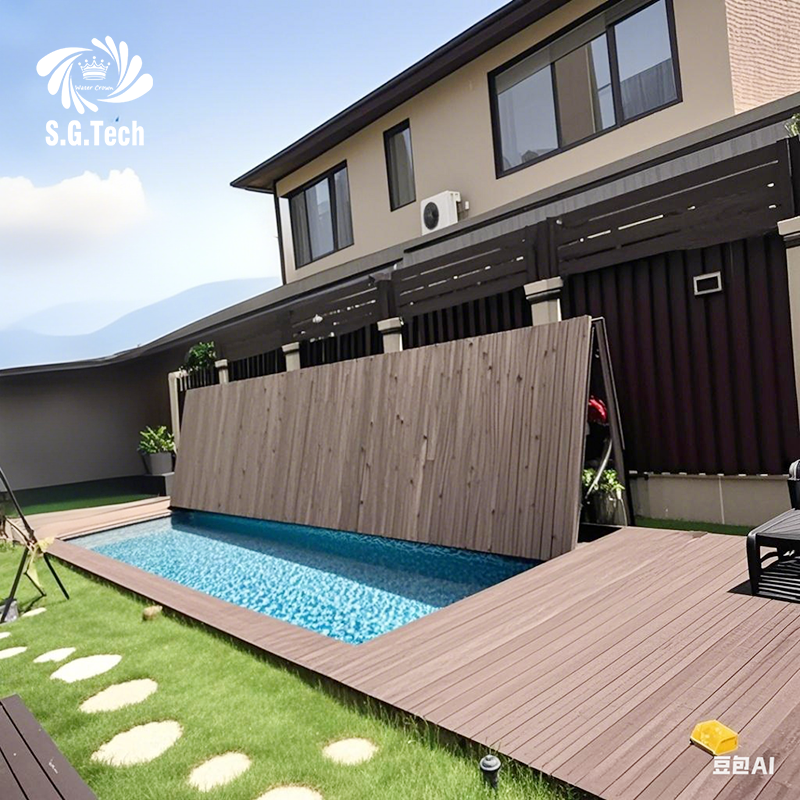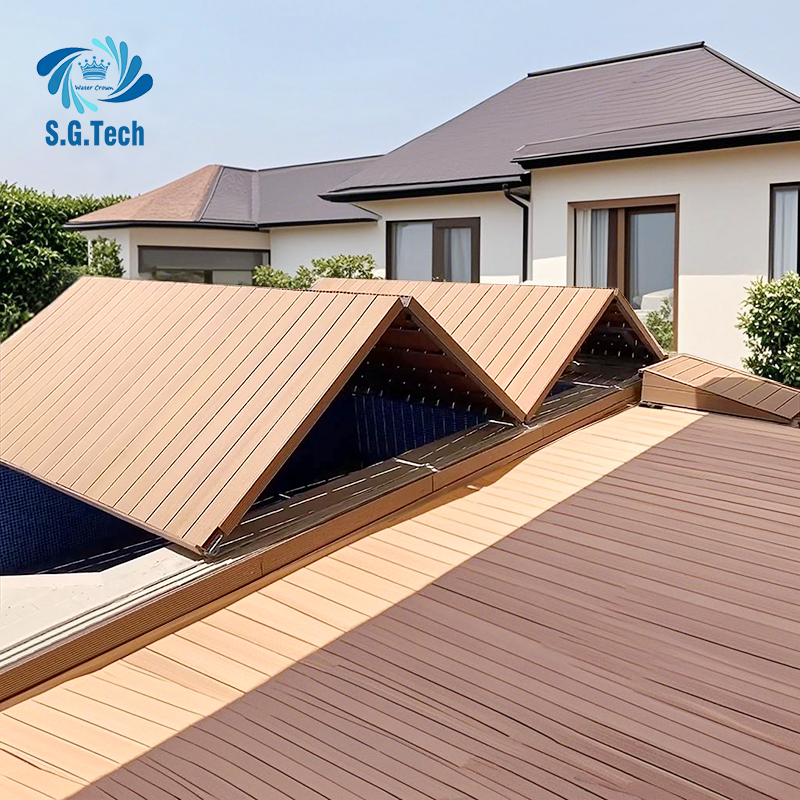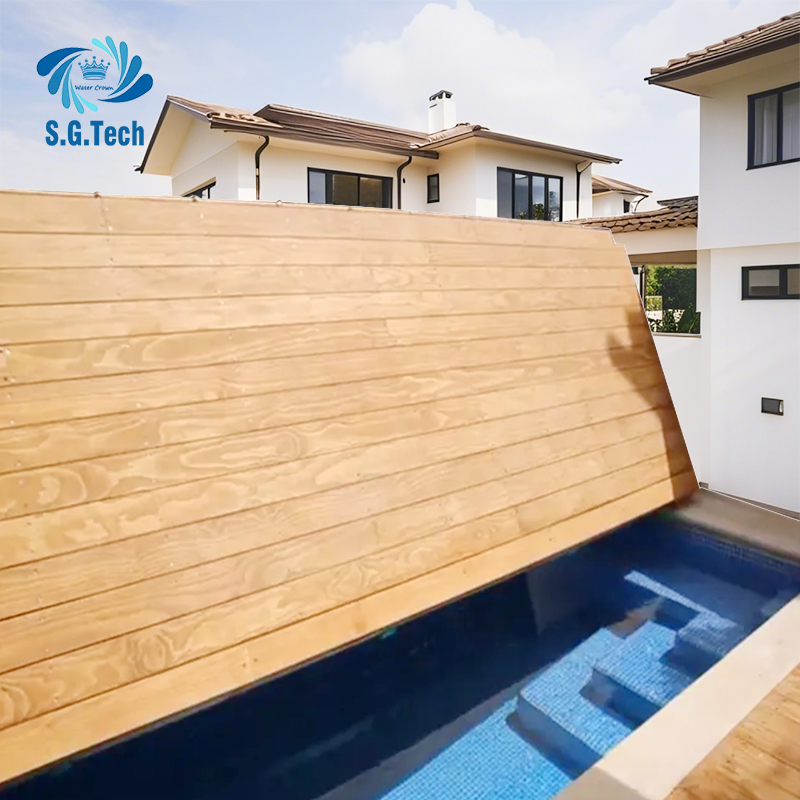
Electric pool covers represent the pinnacle of convenience and automation in pool cover technology. Leveraging electric motors, these covers eliminate the manual effort required for opening and closing, providing pool owners with effortless control over their pool environment. The electric motor is the heart of these covers. High quality motors are designed to deliver smooth and reliable operation, capable of handling the weight of the cover material, even for large sized pools. They are typically equipped with safety features such as obstacle detection sensors. When an obstruction is detected during the movement of the cover, the motor automatically stops, preventing potential damage to the cover or any objects in its path. Some advanced electric pool covers also incorporate soft start and soft stop functions, which gradually accelerate and decelerate the movement of the cover, reducing stress on the motor and the cover material, and enhancing the overall lifespan of the system. Control options for electric pool covers have evolved significantly. Traditional control panels installed near the pool allow users to operate the cover with buttons. However, modern systems often offer remote control capabilities. Wireless remotes enable pool owners to open or close the cover from a distance, such as from the comfort of their patio or indoors. Integration with smart home systems has taken convenience to the next level. Many electric pool covers can now be connected to home automation platforms, allowing users to control the cover via smartphone apps, voice commands through virtual assistants like Alexa or Google Assistant, or even schedule the opening and closing times according to their daily routines. In terms of materials, electric pool covers are constructed from the same durable substances as other types of pool covers, such as PVC or polyethylene. The combination of the robust material and the electric retraction system ensures that the cover can withstand regular use while providing effective protection for the pool. Electric pool covers also contribute to energy savings. By automatically closing the pool when not in use, they minimize water evaporation, reducing the need for water refills and chemical treatments. Additionally, they help maintain a consistent water temperature, reducing the energy consumption of pool heaters. Installation of electric pool covers requires professional electrical expertise to ensure proper wiring and connection to the power source. Routine maintenance includes checking the electrical components for any signs of wear or damage, lubricating the moving parts of the retraction mechanism, and ensuring the functionality of the control systems. Regular servicing helps to keep the electric pool cover operating smoothly and safely for years to come.


